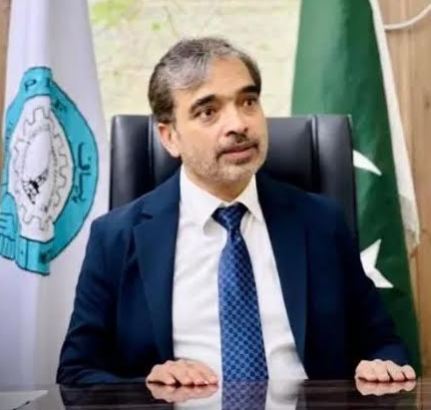Faheem Saigol urges govt to act decisively to unlock full fisheries potential
ISLAMABAD, AUG 31 /DNA/ – The Pakistan Industrial and Traders Associations Front (PIAF) has appreciated the four-year extension granted by the United States for Pakistan’s seafood exports, while at the same time warning that without urgent reforms the country will not fully benefit from this rare opportunity. The approval reflects global recognition of Pakistan’s compliance with marine protection standards but structural flaws such as lack of modern preservation, enforcement of Turtle Excluder Device (TED) rules, and outdated harbour facilities continue to block growth.
PIAF Chairman Faheemur Rehman Saigol, along with Senior Vice Chairman Nasrullah Mughal and Vice Chairman Tahir Manzoor Chaudhary, said the extension under the US Marine Mammal Protection Act (MMPA) secures Pakistan’s access to one of the world’s largest seafood markets and provides long-term stability for a sector that employs millions. However, they underlined that Pakistan must now move beyond paperwork and adopt practical measures that will help farmers, exporters and fishermen secure higher returns.
They pointed out that Pakistani seafood currently fetches around $2 per kilogram in the international market, while the same products could earn many times more if handled, stored and processed according to international standards. For instance, yellowfin tuna preserved at minus 60 degrees Celsius can earn up to $20 per kilogram, yet due to the absence of cold storage and modern boats, it is sold for just $1.5.
The PIAF leadership also highlighted that while Pakistan exported $489.2 million worth of fish and related products in FY25, the same volume could generate nearly $600 million next year with improved quality and compliance. They stressed that this opportunity should not be wasted at a time when foreign exchange inflows are critical for the economy.
At the same time, they raised concerns that Washington has already banned shrimp and catfish imports from Pakistan since 2017 due to the absence of TED enforcement. Unless these rules are implemented, Pakistan will not regain access to these lucrative markets. They reminded the government that the US has also warned that seafood trade could be cut before 2029 if compliance is not achieved, which would reverse all recent progress.
PIAF Senior Vice Chairman Nasrullah Mughal said the condition of Karachi Fish Harbour is another major obstacle, with no upgrades in over a decade. Poor preservation practices and unhygienic handling methods, he noted, keep Pakistan’s exports below potential while regional competitors like India earn $6–8 billion annually from farmed shrimp.
Vice Chairman Tahir Manzoor Chaudhary added that the NOAA approval should be seen as a grace period to overhaul the fisheries sector rather than just a reason for celebration. He urged federal and provincial governments to work jointly with exporters to modernize harbours, enforce conservation standards, and equip fishermen with training and facilities.
PIAF Chairman Faheemur Rehman Saigol said the approval is an encouraging breakthrough but its real value lies in whether Pakistan can turn it into sustained growth. He called on the government to act decisively, saying only practical reforms, infrastructure upgrades and compliance with global standards can transform the fisheries sector into a billion-dollar contributor to the national economy.

















